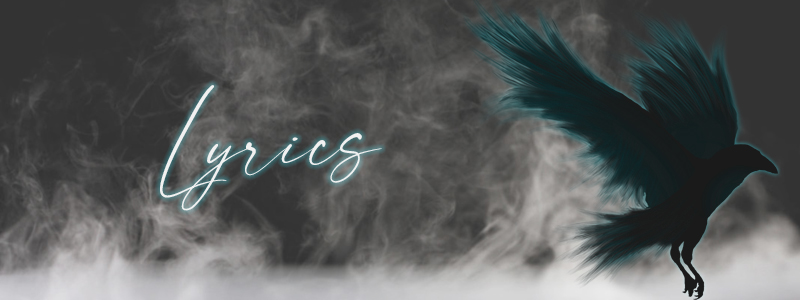|
雪月花-the end of silence- | Setsugekka-the end of silence-
|
|
|
Artist
|
Gackt
|
|
三日月を抱いた君に呟いた
mikatsuki wo daita kimi ni tsubuyaita 「粉雪と踊る君に逢いたい…」 “konayuki to odoru kimi ni aitai…” たった一つだけの想いを乗せて tatta hitotsu dake no omoi wo nosete 紅く染まる雪を宙に散りばめた akaku somaru yuki wo sora ni chiribameta 君を抱きしめる花となれ 吐息紅く染めて詠い続けてた 君を抱きしめる雪となれ 君の微笑みが今、霞んで見えないよ 君を照らし出す月になれるなら 躰 朽ち果てても… 君を抱きしめる雪となれ 君に届きますように… |
三日月を抱いた君に呟いた
I whispered to you who embraced the crescent moon 「粉雪と踊る君に逢いたい…」 “I want to meet you, as you dance with the powder snow…” たった一つだけの想いを乗せて Carrying just one, solitary feeling 紅く染まる雪を宙に散りばめた I starred the sky with the crimson stained snow1 君を抱きしめる花となれ 吐息紅く染めて詠い続けてた 君を抱きしめる雪となれ 君の微笑みが今、霞んで見えないよ 君を照らし出す月になれるなら 躰 朽ち果てても… 君を抱きしめる雪となれ 君に届きますように… |
|
Notiz
|
Credits goes to greyornament@Moon-Struck
The title of this song, “Setsugekka” is a phrase that originates in old Japanese and Chinese poetry, the first recorded usage being in a poem by Chinese poet Bai Juyi, “雪月花時最憶君- At times of snow, moon or flowers, I think of you the most“. The phrase became a popular theme in Japanese art and literature to represent both beauty and the passage of time through the seasons. GACKT has said that he would personally translate the title as “Three Beautiful Things”. 1 The word I’ve variously translated as “starred” “scattering” and “setting”, 散りばめる chiribameru actually means to “stud” or “set” jewels all over something. Unfortunately there’s no single English word that carries that concept. There are two possible kanji that can be used to write this word, he chose the one that means “scatter”. 2 This line is written in archaic Japanese, similar to that used in the Heian era poetry anthology Man’yoshu that GACKT has mentioned as an inspiration. |
Views: 20
